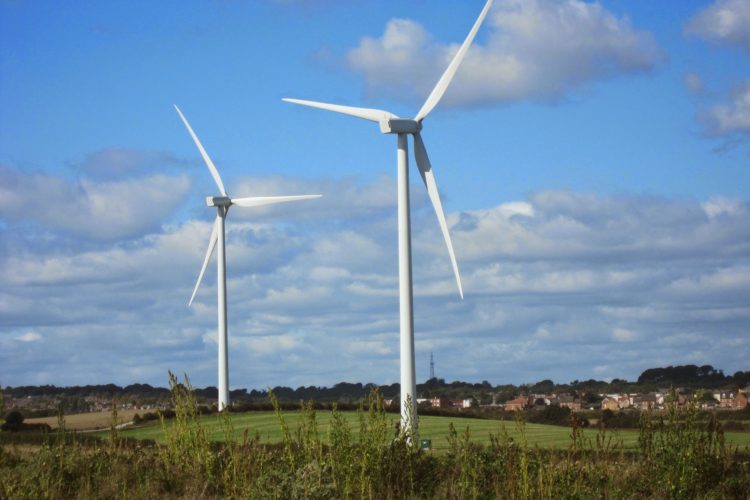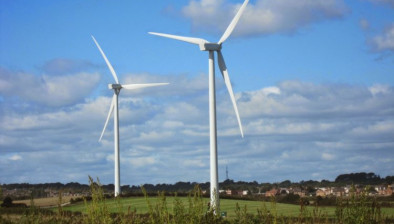Scottish Government urged to double-down on tackling climate and cost of living crises

The report outlines four immediate actions
The Climate Emergency Response Group (CERG) has today launched a report outlining the practical, immediate actions the Scottish Government must take now to avoid the devastating consequences of climate change on communities and livelihoods in Scotland, whilst simultaneously tackling the energy crisis.
‘Unlocking Scotland’s response to the climate emergency: Four immediate actions to fast-track delivery for the Scottish Government’ outlines the key actions CERG believes can and must be taken now to cut emissions and adapt to climate impacts. Taking these steps will improve health and the economy, while enabling Scotland to meet agreed international and national climate goals.
People are rightly worried about the soaring cost of living crisis and these proposed actions will help by reducing energy demand, provide long-term energy security, and will also help with the cost-of-living crisis by reducing energy bills, and will upskill and train people for low carbon jobs, now and in the future. Further delay will only lead to higher costs in future, with many of those costs falling disproportionately on the vulnerable and those with low incomes.
The group believes that only immediate action by the Scottish Government, working with business, citizens and the third sector can tackle both the climate and cost of living crises. The four actions outlined today are fundamental to ‘unlocking’ progress across all sectors to meet Scotland’s ambitious climate targets of 75% emissions reduction by 2030 and achieving net zero by 2045.
The four immediate actions required are:
- Require a ‘Net Zero Test’ for policy and investment decisions
- Unite local and national governments in the climate emergency response
- Accelerate the shift from cars to active, public, and shared transport in Scotland’s cities
- Invest in advice and skills for farmers and crofters to support a just transition
The recent extreme weather experienced in Scotland, and the rest of the UK, highlights the need for ministers to build on recent positive steps already taken to tackle the climate crisis. Much more needs to be done which is why in this year’s programme for government, CERG is calling for rapid, targeted action to unlock barriers to delivery and a shift from incremental, sector-based action to cross-cutting solutions.
Require a ‘Net Zero Test’ for policy and investment decisions
This proposal requires the development of a mandatory Net Zero ‘Test’ for public sector decisions on policy, planning and investment. The ‘test’ would involve a layered approach from screening to assessment as required by the policy or project.
Fabrice Leveque, Climate and Energy Policy Manager at WWF Scotland, and steering group member of CERG said: “Climate change is happening right here, right now. The recent record-breaking temperatures experienced in Scotland and the rest of the UK have given us a glimpse of what could be coming down the track if we don’t take urgent action now.
“The Scottish Government must ramp up the transition to a net-zero economy by ensuring all of its spending and policies meet the net-zero test, so we can avoid the worst impacts of climate change in the future. Decisions are made every day by the public sector which must support our response to the climate emergency, not lock us into a high carbon pathway.”
Unite local and national governments in the climate emergency response
A significant 30% of emissions reduction depends on local government action. This proposal highlights the need to address the issue head on by negotiating and agreeing a joint net-zero delivery framework between national and local government identifying roles, necessary funding, and resources including practical solutions to overcome barriers to delivery and making the most of the existing potential.
Stefanie O’Gorman, director of sustainable economics at Ramboll, and steering group member of CERG, commented: “Swift Local Government action is key in enabling Scotland to achieve its ambitious climate targets. Local government is where decisions are made which influence where people live, work and travel. It is also where the opportunities for a just transition lie – the creation of new jobs, economic innovation, and the creation of healthy, liveable places. A lack of local authority resources, such as funding, expertise, and capacity, is a major barrier, and the Scottish Government must work with local authorities to fill the gaps to get the job done and rapidly deliver on Scotland’s legally enforceable climate targets under the Climate Change Act.”
Accelerate the shift from cars to active, public, and shared transport in Scotland’s cities
Globally, transport accounts for approximately a quarter of CO2 emissions, with much of the world’s transport networks focused on the car. CERG’s proposal aims to tackle this issue by accelerating the shift from cars to active, public, and shared transport in Scotland’s cities. CERG believes this can be achieved through the Scottish Government collaborating closely with local authorities and their regional partners to overcome funding, procedural and governance barriers to enable them to accelerate delivery on the ground. CERG believes the creation of 20-minute neighbourhoods within Scotland’s cities is key, providing people with the opportunity to use affordable forms of travel such as cycling and walking.
Stefanie O’Gorman, director of sustainable economics at Ramboll, said: “Given the rising cost of fuel at the moment, we are in an ideal moment to revaluate our relationship with cars. Ultimately, we are in a position where drivers are paying a premium for the high-carbon option, and so the Scottish Government should seize this opportunity and speed up delivery of alternatives to reduce peoples’ need to rely on cars. This would also help address the ongoing issue of demand outstripping supply within the car industry.
“It is crucial that walking, cycling, and public transport become more convenient, affordable, and cost effective than the use of a private car. Scotland’s cities are best placed to be the first movers to reduce car dependence by investing in and creating more space for walking, cycling, shared and public transport, as well as introducing measures which can deliver widespread benefits for the local economy, public health, social inclusion, and the environment.”
Invest in advice and skills for farmers and crofters to support a just transition
Agriculture is a key area where greenhouse gas emissions must continue to be reduced. Livestock and agricultural soils are among components that together account for almost a fifth of Scotland’s emissions - but there is plenty of scope to improve through innovative technology, operational efficiencies and appropriate use of land for carbon sequestration. CERG’s proposal is for the Scottish Government to realign and upscale the provision of accessible advice and skills development to farmers and crofters to a £20 million a year service.
Sarah-Jane Laing, chief executive of Scottish Land & Estates, and steering group member of CERG, added: “Support and education for farming and crofting businesses is crucial in the process of transitioning to climate and nature friendly farming, helping businesses to innovate whilst also reducing their impact on the environment. The provision of advice to speed up the agricultural transition needs to be improved in order to ensure a fair and managed process for those involved.”







